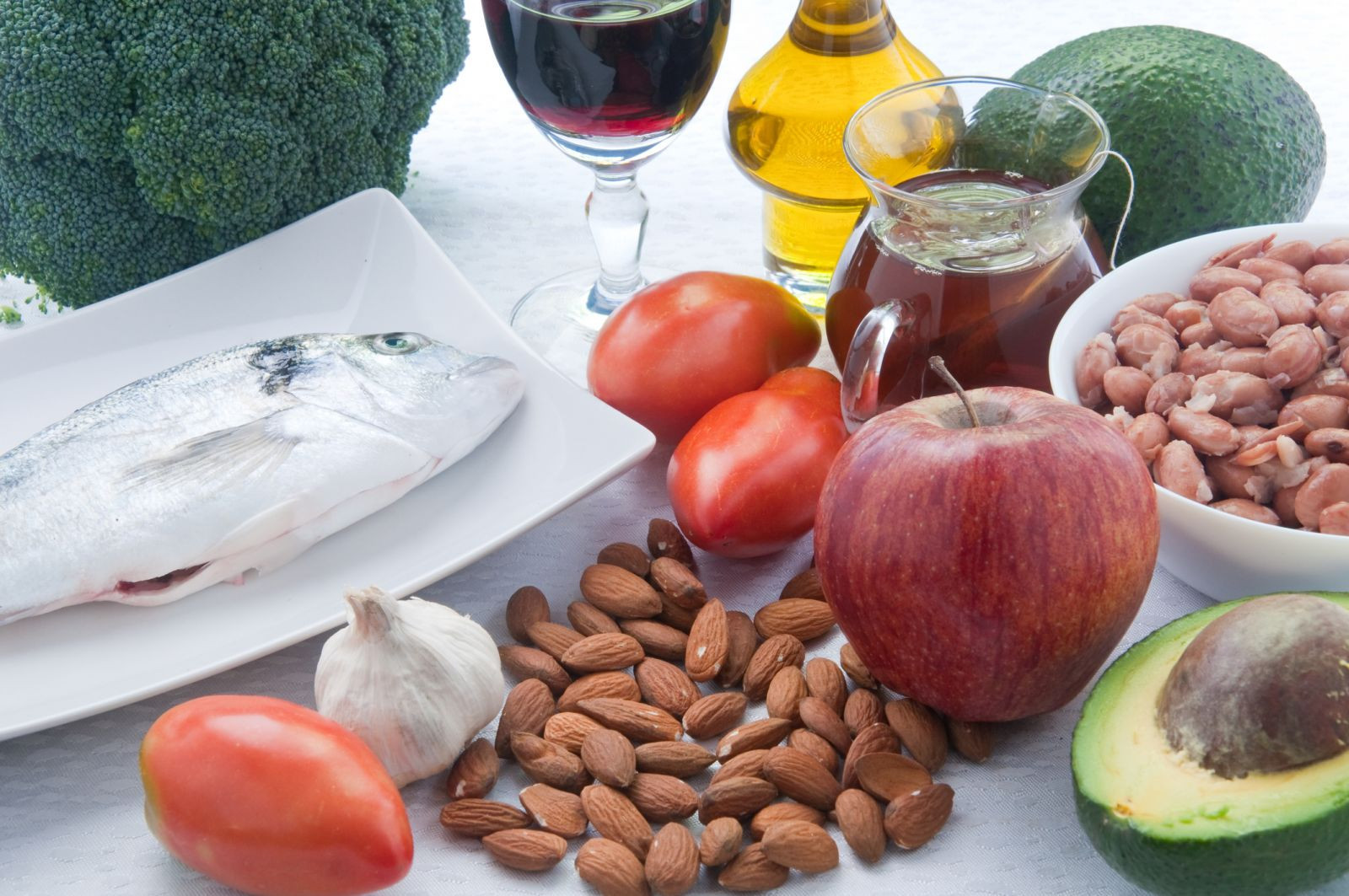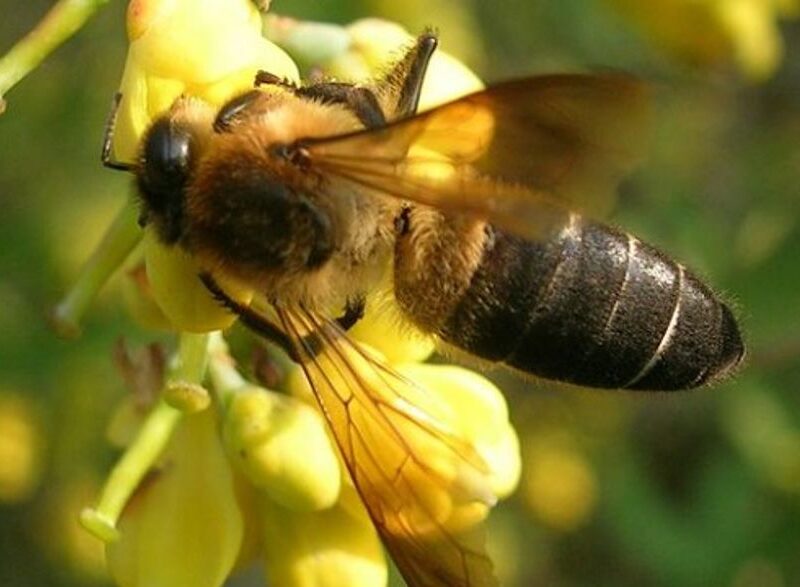Lowering cholesterol levels can significantly benefit heart health, and incorporating specific foods into your diet can help achieve this. Foods high in soluble fiber, such as oats, whole grains, fruits, and vegetables, are effective in reducing LDL (bad) cholesterol. Additionally, nuts, seeds, and legumes provide healthy fats and plant sterols that can lower cholesterol levels.
Fatty fish, like salmon and mackerel, rich in omega-3 fatty acids, are beneficial for raising HDL (good) cholesterol and lowering triglycerides. Olive oil and avocados offer monounsaturated fats and antioxidants, while soy foods contain isoflavones that aid in cholesterol reduction.
Other options include garlic, known for its cholesterol-lowering properties, and green tea, which contains catechins that may help lower cholesterol levels.
How do oats and whole grains lower cholesterol?
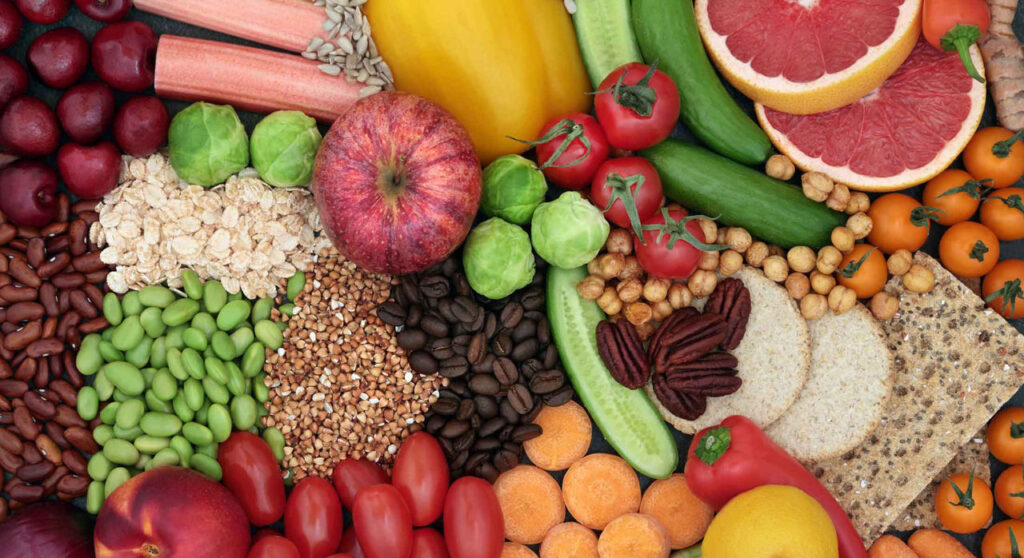
Oats and whole grains are rich in soluble fiber, particularly a type called beta-glucan. When you consume foods high in soluble fiber, like oats and whole grains, the fiber forms a gel-like substance in your digestive system. This gel traps cholesterol-rich bile acids, preventing them from being absorbed into your bloodstream.
As a result, your liver needs to produce more bile acids to replace those lost in your stool, and it does so by pulling cholesterol from your bloodstream. This process helps lower your blood cholesterol levels, particularly low-density lipoprotein (LDL) cholesterol, often referred to as “bad” cholesterol.
Additionally, whole grains contain other beneficial nutrients like phytochemicals, antioxidants, and minerals that may contribute to overall heart health and help lower cholesterol levels. Overall, the combination of fiber and other nutrients in oats and whole grains works together to help reduce cholesterol levels and support heart health.
What are the top cholesterol-lowering fruits and vegetables?
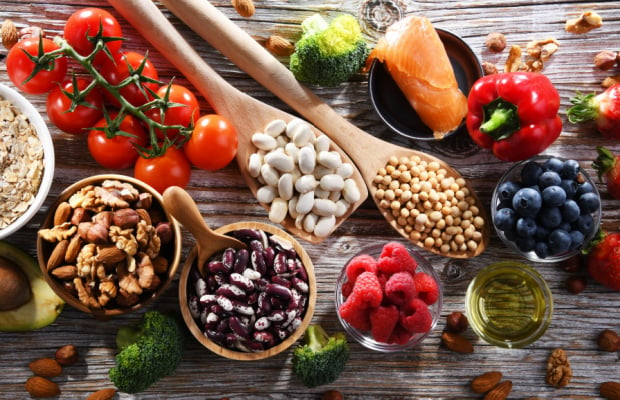
Several fruits and vegetables are known to help lower cholesterol levels due to their high fiber, antioxidant, and phytosterol content. Here are some top options:
- Berries: Eat strawberries, blueberries, and others. They have good stuff that helps keep your heart healthy.
- Citrus Fruits: Oranges, lemons, and grapefruits are great. They have things that can make your heart stronger.
- Apples: An apple a day can help your heart. They have special things in their skin that are good for you.
- Avocado: Avocados are cool! They have healthy fats that keep your heart happy.
- Leafy Greens: Eat spinach, kale, and other green veggies. They help your heart and make you strong.
- Oats: Oats are like magic for your heart. They have special stuff that can lower the bad stuff in your body.
- Beans and Legumes: Beans like kidney beans and lentils are super. They have things that make your heart smile.
- Brussels Sprouts: These little green balls are good for you! They help your heart and make you feel good.
How do nuts and seeds contribute to cholesterol reduction?
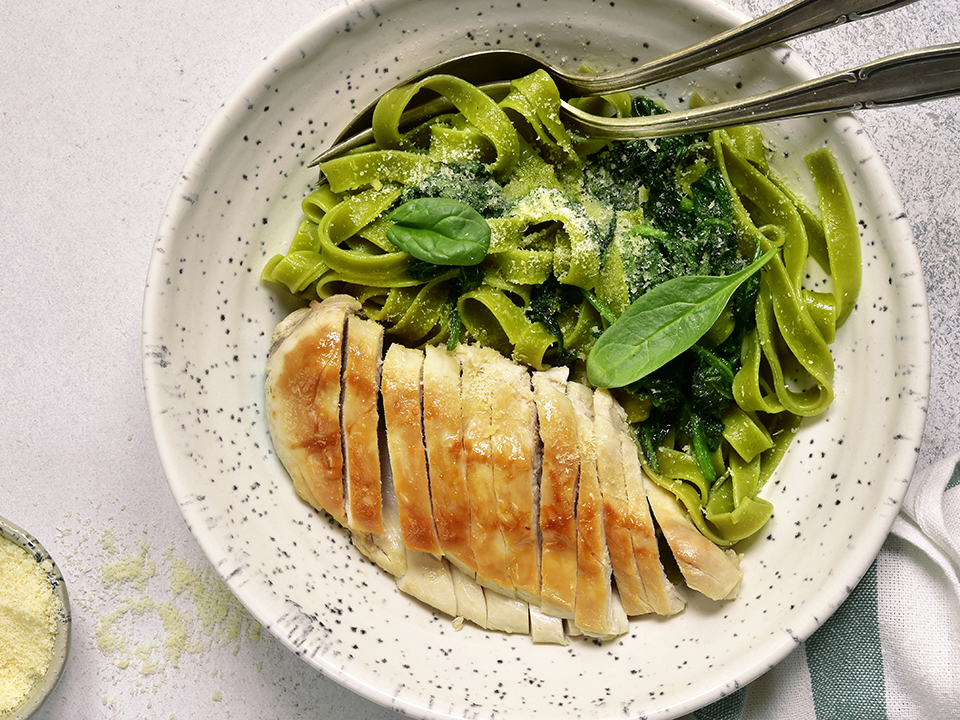
Nuts and seeds contribute to cholesterol reduction in several ways. Firstly, they are rich in healthy fats, particularly monounsaturated and polyunsaturated fats, which are beneficial for heart health. These fats can help lower LDL (bad) cholesterol levels in the blood. Additionally, nuts and seeds are excellent sources of dietary fiber, including soluble fiber, which can reduce the absorption of cholesterol in the bloodstream, leading to lower overall cholesterol levels.
Moreover, they contain plant compounds such as phytosterols, antioxidants, and flavonoids, which have been shown to have cholesterol-lowering effects. Phytosterols, for instance, compete with cholesterol for absorption in the gut, further contributing to reduced cholesterol levels. Some nuts and seeds also provide omega-3 fatty acids, like walnuts, flaxseeds, and chia seeds, which have anti-inflammatory properties and can improve heart health by lowering triglyceride levels.
Including a variety of nuts and seeds in your diet, such as almonds, walnuts, pistachios, flaxseeds, chia seeds, and pumpkin seeds, can promote better cholesterol levels and overall cardiovascular health. However, it’s essential to enjoy them in moderation due to their high calorie content.
What is the role of legumes in lowering cholesterol?
Legumes like beans, lentils, and peas are great for your heart because they have lots of fiber. This special kind of fiber helps lower bad cholesterol in your body. When you eat legumes, the fiber grabs onto the cholesterol in your tummy and stops it from going into your blood. That’s good because too much bad cholesterol can make your heart sick.
Also, legumes don’t have the bad fat that can hurt your heart like some other foods do. So, eating beans, lentils, and peas is a yummy and healthy way to take care of your heart!”
FAQ’s
Which drink reduces cholesterol?
Green tea is known to help reduce cholesterol levels due to its high concentration of antioxidants called catechins.
Are bananas good for cholesterol?
Yes, bananas are beneficial for cholesterol management due to their high fiber content, which can help lower LDL (bad) cholesterol levels.
Does lemon water reduce cholesterol?
While lemon water may have some health benefits, there’s limited evidence to suggest that it directly reduces cholesterol levels.
Does garlic lower cholesterol?
Yes, garlic has been shown to modestly lower cholesterol levels, particularly LDL (bad) cholesterol, when consumed regularly as part of a balanced diet.
Are eggs bad for cholesterol?
Contrary to past beliefs, moderate egg consumption does not significantly raise cholesterol levels for most people. However, individuals with specific health conditions may need to limit their intake.
Final Words
Incorporating cholesterol-lowering foods into your diet can help keep your heart healthy. By choosing foods like oats, fruits, nuts, and fatty fish, you can manage your cholesterol levels and reduce the risk of heart disease. Remember to also include vegetables, legumes, and healthy fats like olive oil and avocados in your meals.
Don’t forget about the benefits of soy foods, garlic, and green tea too! Overall, making these simple changes to your diet can make a big difference in your heart health and well-being.

